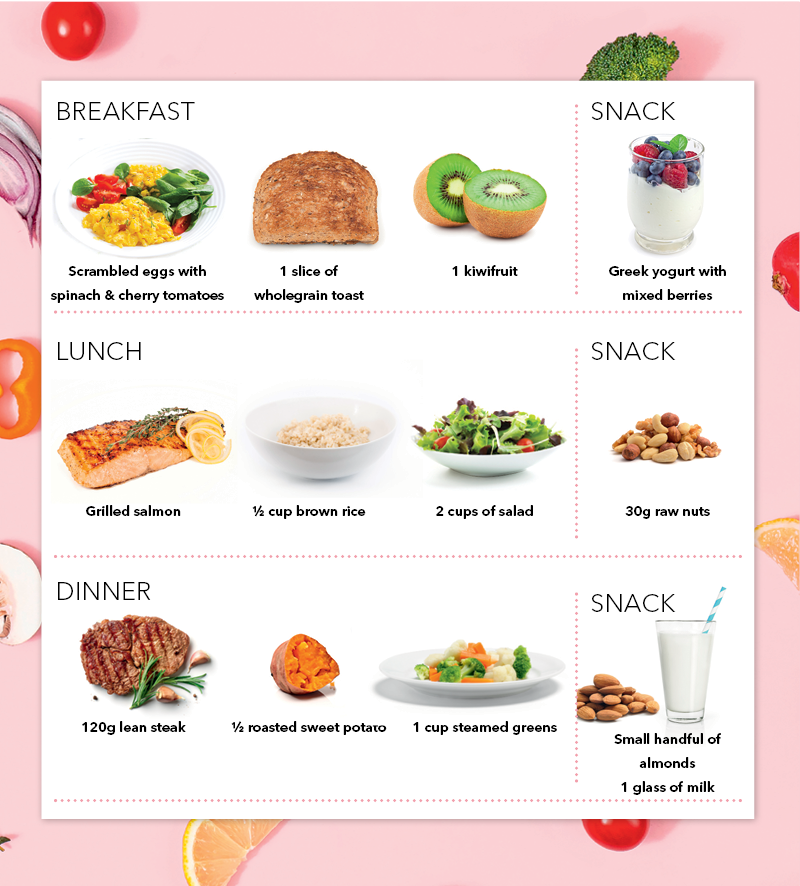
Gestational diabetes is the fastest growing type of diabetes. The good news is that this condition can be managed with some healthy lifestyle tweaks.
Although it’s one of the most common complications of pregnancy, medical advancements and increased awareness have significantly improved the outcomes for mothers and babies with gestational diabetes.
What is gestational diabetes?
Gestational diabetes is a type of diabetes that occurs during pregnancy. It is characterised by high blood glucose (sugar) levels that develop during gestation. Women with gestational diabetes can still have a healthy baby but it is important that the condition is managed to reduce the risk of developing complications during pregnancy.
The exact cause of gestational diabetes is not fully understood, but it is thought to be related to hormonal changes. During pregnancy, the placenta produces hormones that can interfere with the action of insulin — the hormone that regulates blood sugar levels. As a result, women with gestational diabetes have a greater insulin resistance than that seen in normal pregnancies and are unable to produce enough insulin to control their own blood glucose levels. Consequently, their blood glucose levels rise above the normal range for pregnancy, which can be harmful to both the mother and the baby.
The condition usually resolves after the baby is born, but can often reoccur in later pregnancies and, among other adverse outcomes, increases the risk of type 2 diabetes for the mother and baby in the future.
Who is at risk?
The incidence of gestational diabetes is relatively high, with approximately 1 in 10 and 1 in 20 pregnant women being diagnosed with the condition in Australia and New Zealand respectively. The condition can affect any pregnant woman, but women who are at higher risk include those over the age of 35, women with overweight or obesity, a family history of diabetes, a history of gestational diabetes in a previous pregnancy, and polycystic ovary syndrome (PCOS).
Early detection and management of gestational diabetes are important to minimise the risk of complications for both the mother and the baby. Pregnant women typically receive a glucose screening test between 24 and 28 weeks of gestation. Women with gestational diabetes risk factors should be tested earlier in their pregnancy.
The glucose screening test involves drinking a sweet drink that contains a specific amount of glucose, followed by a blood test one hour later to measure the level of glucose in the bloodstream. If the glucose level is higher than normal, further testing may be done to confirm a diagnosis of gestational diabetes. The glucose screening test is quick and convenient, and results are usually available fairly quickly.
Keep moving
Historically, exercise during pregnancy may have been considered risky. However, research has increased our understanding of the importance of regular physical activity, especially for managing gestational diabetes. It can help improve insulin sensitivity and manage blood sugar levels.

It’s recommended that pregnant women aim to meet the guidelines for weekly physical activity: 150 minutes of moderate intensity or 75 minutes of vigorous intensity exercise, or a combination of both. Remember to always speak with your healthcare provider before making any dietary changes or starting a new exercise routine.
Explore exercise classes for a safe way to keep your activity up during pregnancy.
Am I at risk?
➜ Aged 40 years or over
➜ Are above the healthy weight range
➜ Have a family history of diabetes
➜ Have a history of gestational diabetes in a previous pregnancy
➜ Have polycystic ovary syndrome (PCOS)
Complications
➜ for the mother:
● Pre-eclampsia
● Pre-term labour
● Delivery complications
● Increased risk of type 2 diabetes later in life
➜ for the baby:
● Macrosomia (large birth weight)
● Hypoglycaemia (low blood sugar)
● Birth defects
● Respiratory distress syndrome
● Increased risk of type 2 diabetes later in life
Day on a plate
A healthy meal plan for gestational diabetes includes a balanced intake of carbohydrates, proteins and healthy fats spread throughout the day.

For more advice on gestational diabetes, we recommend: Gestational diabetes: What it means for you and your baby and Prevention of gestational diabetes
Article sources and references
- Arianne S. et. al. 2022. A Clinical Update on Gestational Diabetes Mellitus. Endocrine Reviews. Volume 43 (5): 763–793.https://academic.oup.com/edrv/article/43/5/763/6511028
- Australian Institute of Health and Welfare. Incidence of Gestational diabetes in Australia. Available at www.aihw.gov.au Accessed May 2023.https://www.aihw.gov.au/reports/diabetes/incidence-of-gestational-diabetes-in-australia/contents/what-is-gestational-diabetes
- Diabetes Australia. Gestational diabetes. Available at www.diabetesaustralia.com.auhttps://www.diabetesaustralia.com.au/about-diabetes/gestational-diabetes/
- Exercise Right. Exercise during pregnancy What you need to know. Available at www.exerciseright.com.au Accessed May 2023.https://exerciseright.com.au/exercise-during-pregnancy-what-you-need-to-know/
- Nankervis A et. al. 2018. Gestational diabetes mellitus: A pragmatic approach to diagnosis and management. 2018. Australian Journal of General Practice. Volume 47(7).https://pubmed.ncbi.nlm.nih.gov/30114871/
- Tsakiridis I et.al. 2021. Diagnosis and Management of Gestational Diabetes Mellitus: An Overview of National and International Guidelines. Obstetrical & Gynecological Survey. 76(6): 367-381.https://pubmed.ncbi.nlm.nih.gov/34192341/
- Mahtab. N. et.al. 2019. Comparison of the International Association of Diabetes in Pregnancy Study Group Criteria with the Old American Diabetes Association Criteria for Diagnosis of Gestational Diabetes Mellitus. Int J Endocrinol Metab. V. 17(4).https://www.ncbi.nlm.nih.gov/pmc/articles/PMC6935709/
www.healthyfood.com










